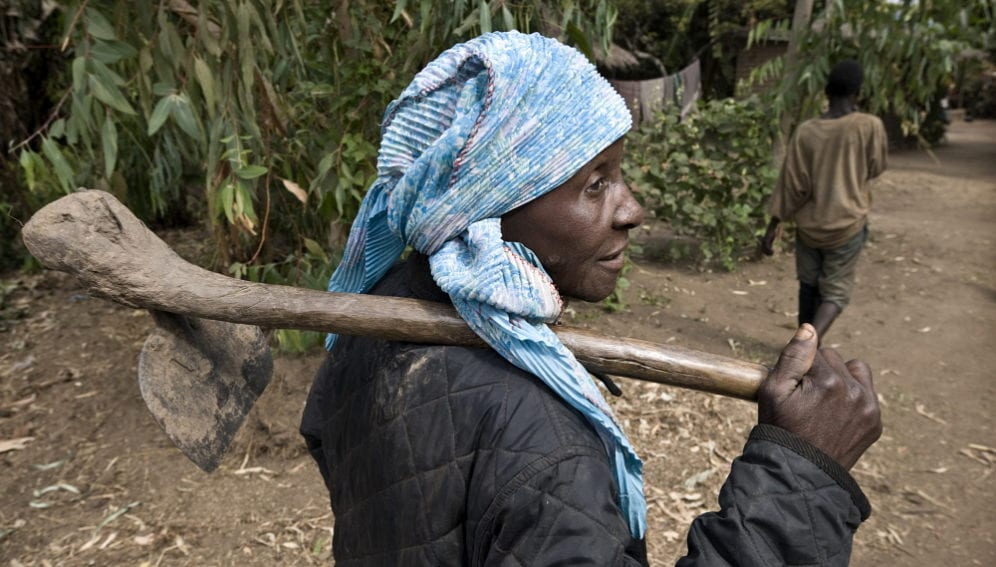By: Lakshmi Puri
Send to a friend
The details you provide on this page will not be used to send unsolicited email, and will not be sold to a 3rd party. See privacy policy.
Women work closely with natural resources — and need to be closely involved in managing them, says Lakshmi Puri.
The first-ever United Nations Environment Assembly, that took place in Nairobi, Kenya, last month (23-27 June), came at a historic conjunction of events, as the international community discusses a new generation of Sustainable Development Goals and a post-2015 development agenda that will build on earlier successes and address gaps left over from the Millennium Development Goals.
The Assembly convened a Gender and Environment Forum and reviewed the Beijing Platform for Action, through which 189 countries adopted an agenda for empowering women close to 20 years ago (in 1995). The Forum’s High-Level Panel specifically looked at Section K, which deals with women and the environment. And it found an unfinished agenda.
Close to nature
Activities traditionally carried out by women are closely linked to the environment. They are often tied to ecosystem goods and services, such as clean water, and influence and maintain ecosystem resilience.
For instance, UNICEF estimates that across 25 Sub-Saharan African countries women spend a combined total of at least 16 million hours each day collecting drinking water (compared with men’s six million hours). [1] In many regions, women’s care work includes water use and management: cooking, cleaning, and laundry, which all require fetching and hauling water.
Similarly, women and girls spend a significant portion of their time (up to four hours a day each in Sub-Saharan Africa) performing subsistence tasks linked to natural resources, such as gathering fuel wood or growing vegetables to feed their families. [2]
This deprives them of time or access to other activities — not least education, decently paid employment and leisure — that could enhance their welfare and wellbeing and that of their families. And it limits their options for social and political interaction outside the household.
Yet it also means women are well placed to understand first-hand how important environmental sustainability and resource management are for their families and communities.
In spite of this, women remain insufficiently recognised and involved in environmental policy-making and environmental management. This must change; achieving environmental sustainability, gender equality and women’s empowerment are closely intertwined.
Platform needs political push
A major recommendation of last month’s Forum was political commitment to and accelerated implementation of the Platform for Action agenda for empowering women.
This requires renewed efforts by governments, civil society, the private sector and others. Supporting women’s engagement in policy formulation — as professionals, resource users and members of women’s organisations — is critical for all spheres of life, including for natural resource management.
“In spite of this, women remain insufficiently recognised and involved in environmental policy-making and environmental management. This must change; achieving environmental sustainability, gender equality and women’s empowerment are closely intertwined.”
Lakshmi Puri
Section K specifically calls for women to be actively involved in environmental decision-making; for gender concerns and perspectives to be integrated into sustainable development policies and programmes; and for mechanisms that assess environmental policies’ impact on women.
The post-2015 sustainable development agenda must put renewed focus on women, households and communities in the context of environmental management. And it must respect and uphold women’s rights to essential environmental goods and services such as water, energy and food.
It will be crucial to put in place an environment that is conducive to gender equality more broadly — through promoting gender-sensitive legislation; enforcing existing legislation; making judicial systems more accessible and responsive to women; and providing legal aid to women seeking to claim their rights. For example, legal provisions and policies for improved access to adequate land are essential for women’s economic empowerment.
Build on success stories
Despite obstacles, women everywhere show that they can be resourceful leaders, innovators and powerful agents of environmental change. One prominent example is the late Nobel Peace Prize winner Wangari Maathai and her Green Belt Movement in Kenya, through which women have planted more than 20 million trees on their farms, schools and church compounds, helping to conserve the environment and improve livelihoods.
There are many other successful initiatives led by amazing women, some of them recipients of the SEED Award for Entrepreneurs in Sustainable Development, which rewards local entrepreneurs that make real improvements in poverty eradication and environmental sustainability.
In Colombia, through the business venture ‘PROVOKAME’, rural women produce, market, and distribute biodegradable plates made from natural fibres, recycled paper and seeds that may germinate after disposal.
In Uganda, BanaPads Social Enterprise employs young rural women to manufacture and distribute sanitary pads produced from natural agricultural waste materials. The enterprise provides young entrepreneurial ‘champions’ with a complete start-up kit of inventory, training and marketing support.
These innovative initiatives and many more deserve greater support by governments and donors to take them to scale and broaden their impact. As the world experiences combined fuel, food, climate, economic and financial crises, now is the time to leverage our collective creativity — including that of the female half of our population — to find solutions to the world’s challenges.
Gender equality needs to be front and centre in plans and policies to achieve environmental and economic sustainability. Such efforts will have the highest returns if women can exercise their collective voice as managers, decision makers, leaders, innovators, and contributors in all aspects of environmental management.
Lakshmi Puri is deputy executive director and UN assistant secretary-general at UN Women. She can be contacted at [email protected]
The views, findings, interpretations and conclusions expressed in the Article are solely those of the author and do not necessarily represent the views of UN Women, the United Nations or its Member States.
References
[1] Progress on drinking water and sanitation: 2012 update (UNICEF and WHO, 2012)
[2] C. Mark Blackden and Quentin Wodon (eds) Gender, time use and poverty in Sub-Saharan Africa (World Bank, 2006)














